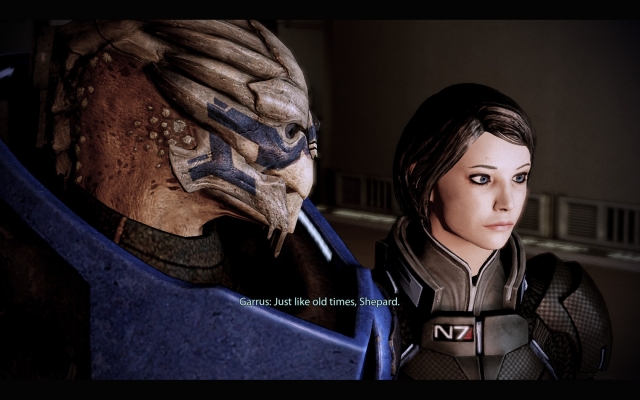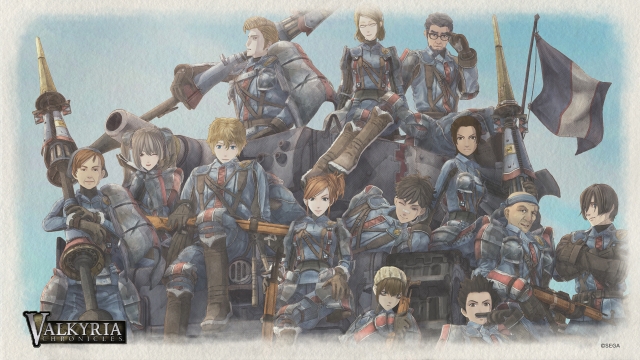
The War of the Stories - Emergent vs. Linear Storytelling
Roger Ebert, the arch-critic of Hollywood, was a man who disliked the idea of videogames being an artistic form. He described the act of playing a game as “a loss of those precious hours we have available to make ourselves more cultured, civilized and empathetic”. Ebert took umbrage to the idea that a game’s story can affect a person. To him, player agency was a key factor in the demotion of games from art to consumable. You’re effectively moving a chess piece, so why should you care about it? A game of chess is never anything more than victory or defeat, it's not about how many pieces you lost on the way.
As a writer, or at least someone delusional enough to call themselves a writer, I’m obsessed with that storytelling mantra of show, don’t tell. Interpretation, not exposition, is king. Give someone a set of tools or a blank canvas and let them create, instead of simply revealing to them a finished spice rack or painting. Reader impression is such a powerful tool that whole character belief systems can be drawn up along with it. Think about the unreasonable uproar when J. K. Rowling announced Dumbledore was homosexual - people had created in their minds a version of the character so unique to them that the revelation gave them a jolt.
This individual creationism is what fans of emergent gameplay point to as an example of how great videogame storytelling can be. You need only ask someone who has lost an entire squad in XCOM to see the frustration in their eyes. To you, they would just be pawns in a larger march towards victory, but to that person those squad members had been allies and compatriots with hours of investment.

Emergent stories will always be hard-hitting for the player, as they are the ones experiencing it. There is always something thrilling and exciting about being part of a unique moment, something that potentially no-one else on the planet has experienced within that game. It’s a personal journey - one that, when trying to explain it to others, however, loses its touch.
Storytelling, after all, is based around shared human experience. There’s a reason that the Greek gods of ancient times were a bunch of catty, capricious and vindictive whiners: because people are, too. Having shared experiences, feelings and emotions with the characters in a story creates an emotive bond that steers the story. A figure like Ezio Auditore is liked because he’s a rogue but, through words and deeds, shows that he has a heart of gold underneath. Corporal Smith, who ran out in front of a dozen aliens and was rightly shot down for it, does not have this same depth.
This is where emergent gameplay can fall short. Encounters and random events in videogames on their own don’t constitute an overarching narrative - they’re nothing more than a series of unrelated occurrences. A story is more than just a string of set pieces - it’s a reaction to those events. Those reactions are potentially where Telltale went so right with The Walking Dead and where Bioware perfected their craft in Star Wars: Knights of the Old Republic, Dragon Age and Mass Effect. All offer character-driven narratives where the choices a player makes (the set-pieces) create ripples upon which others (your companions) can react.

There are games that try to replicate this to some effect. My beloved Football Manager, which takes up far too much of my life, attempts to have your players react to the treatment of others. Yet, after a few seasons you quickly learn what responses will placate them and move on with more important things - like buying every promising young footballer in Brazil. At the end of the day, linear narrative gives the characters in a story the necessary background to, in turn, give the player a gauge on their personality, likes and dislikes.
A linear story also allows for higher investment in other factors of development. Half-Life 2, probably the king of the linear games, used highly-detailed face models on its characters to better express their feelings. This created a memorable cast that left an impression on its players and the gaming industry as a whole. Half-Life 2 also creates another perfect example of linear narrative that isn’t tied to its characters: Ravenholm. Before going to the doomed mining town, the player is given so many clues as to its fate that by the time they set foot into its zombie-infested streets they’re already terrified.
There are some games that manage to bridge the gap between emergent and linear. Valkyria Chronicles gives the player a core set of characters but also randomly generates other combatants. All of these come with their very own traits - one may like the desert and hate grasslands, another may get a combat bonus when fighting in city streets or alongside someone from the same race. In the same vein the game even tackles racism by having stat penalties when racists fight alongside the culture they hate.

The endless stream of participants in an emergent game like XCOM is in itself a hindrance to the emergent style. If you're playing it Ironman mode and not reloading every save after a favourite soldier dies, there will be a constant stream of new recruits for you to invest your time into again. The pain of loss is there, but it’s never long-lasting, the feedback loop of recruit-veteran-death repeats ad infinitum and the only real incentive after some time is to keep veterans alive because their abilities are useful.
Compare this to the stories of Lee Everett from The Walking Dead, Mordin Solus from Mass Effect, John Marsden from Red Dead Redemption or even Soap McTavish in Call of Duty Modern Warfare. Players connect with each other through their shared experiences with the characters on screen. There's a reason that, despite it being a blocky mess of outdated graphics, gamers still become emotional when they re-watch or re-play the final moments of Aeris in Final Fantasy VII.
Through moments with these characters we create the polar opposite of what Roger Ebert called “a loss of those precious hours”. Despite what he opined, narrative storytelling creates an atmosphere in which we can become more cultured, more civilised and more empathetic. That shared human experience is what makes gaming a special medium, more so than film and television. It’s what makes it an art.







COMMENTS